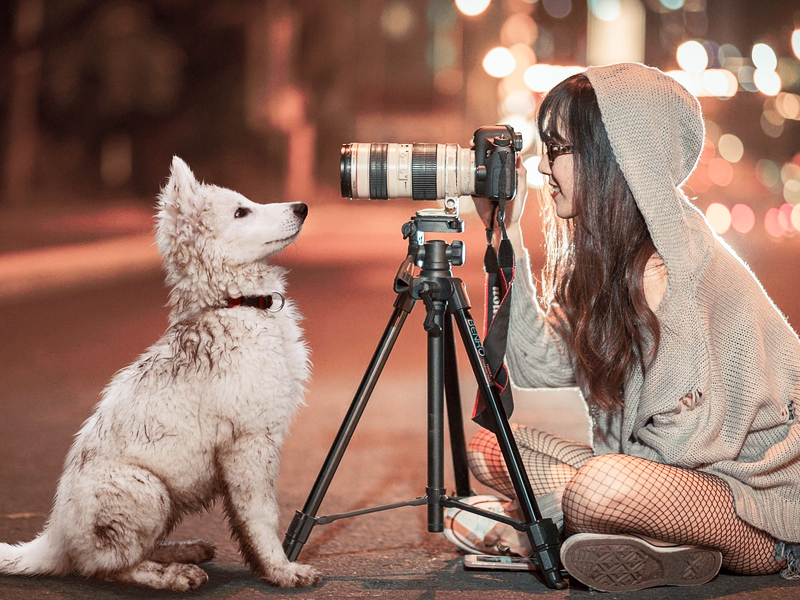Consumption plays a central role in global economic and environmental dynamics, and women often have a significant influence on purchasing decisions within the home and beyond. Understanding and harnessing this consumer power can be a crucial lever in the fight for animal rights and ecology.
A driving force in consumer choices
Women are often the main decision-makers when it comes to purchasing for their families, giving them a key role in how resources are used and products consumed. Their daily choices have a huge impact on the environment, animals and communities around the world. By choosing sustainable, organic and ethical products, women have a lasting and positive influence on production practices. What’s more, their position in terms of children’s education makes them central to everyone’s future. Very often, women’s lack of education or their difficulties in achieving financial independence hinder their freedom of choice. So their role in society, respect for their equality with men and their fundamental freedoms are crucial in many ways for the future of humanity.
Education and awareness
Empowering women as responsible consumers requires education and awareness-raising. By providing transparent information on the environmental and social impacts of products, women are better equipped to make informed choices that are aligned with their values. Initiatives such as eco-labels, ethical certifications and sustainable purchasing guides can help guide consumers. Women are often more aware of environmental, health and animal welfare issues.
Influence on business and industry
As consumers, women also have the power to influence companies and industries through their consumer preferences. By favouring brands committed to sustainable practices, women are sending a clear message that environmental and social responsibility is a priority. This pressure of demand can encourage companies to review their internal policies in order to retain their customers. The new generations are aware of their power to influence and know how to use digital tools such as social networks to make brands and manufacturers comply with new manufacturing or formulation standards.
Creating cultural change
Women’s power over consumption goes beyond individual choices to influence cultural and social norms. By promoting sustainable and ethical lifestyles, women can help transform the behaviour of society as a whole. By encouraging the sharing of experience and good practice, they can inspire others to adopt a more environmentally and animal-friendly lifestyle.
In conclusion, women’s responsibility for purchasing represents huge potential in the fight for animal rights and ecology.
Their influence goes beyond the market to catalyse large-scale positive change, transforming industries, policies and cultural norms towards a fairer, greener future for all. To celebrate International Women’s Rights Day on 8 March, here are a few portraits of women committed to respecting animal rights.
- Jane Goodall: A renowned primatologist, Jane Goodall is famous for her groundbreaking studies into the behaviour of chimpanzees in Africa. She is an ardent defender of the protection of wild animals and their habitats, and founder of the Jane Goodall Institute, dedicated to research and conservation.
- Ruth Harrison: British author and animal rights campaigner Ruth Harrison is best known for her influential book “Animal Machines” (1964), which exposed the inhumane living conditions of animals on factory farms.
- Dian Fossey: An American zoologist who has devoted her life to the study and protection of mountain gorillas in Rwanda. Her book “Gorillas in the Mist” (1983) drew international attention to the conservation of these endangered species.
- Ingrid Newkirk: Co-founder of the animal rights organisation PETA (People for the Ethical Treatment of Animals), Ingrid Newkirk is a passionate campaigner who uses controversial methods to raise public awareness of animal abuse.
- Brigitte Bardot: A world-famous French actress who became an animal rights activist. She founded the Brigitte Bardot Foundation in 1986, which works to protect domestic and wild animals in France.
- Caroline Earle White: An American animal rights pioneer, Caroline Earle White founded the Pennsylvania Society for the Prevention of Cruelty to Animals (PSPCA) in 1869, one of the first animal protection societies in the United States.
- Anna Sewell: The British author of the famous novel “Black Beauty” (1877), Anna Sewell is renowned for her advocacy of the humane treatment of horses and for raising public awareness of equine abuse.
- Cynthia Moss: An American ethologist and conservationist who has devoted her career to the study and protection of elephants in Africa. She is the founder of the elephant research organisation Amboseli Trust for Elephants.
- Jill Robinson: Founder and CEO of Animals Asia, Jill Robinson is an animal rights campaigner fighting to end bear cruelty in Asia’s bile industry and promote humane alternatives.
- Brigitte Gothière: Co-founder and spokesperson for the L214 Éthique & Animaux french association. Brigitte Gothière has demonstrated a relentless commitment to animal rights and is recognised for her leadership role in the French vegan movement.
- Greta Thunberg: At just 19, Greta Thunberg has become a leading figure in the fight against climate change. As a vegan too, she has inspired millions of people around the world to take action to protect the environment and animals.
- Genesis Butler: At the age of 14, Genesis Butler is a passionate vegan activist and speaker who advocates animal protection and raising awareness of the meat industry’s impact on the environment.
Our thoughts go out to the thousands of anonymous women who fight for animal rights, and whose daily commitment helps to save, care for and protect millions of animals around the world.



